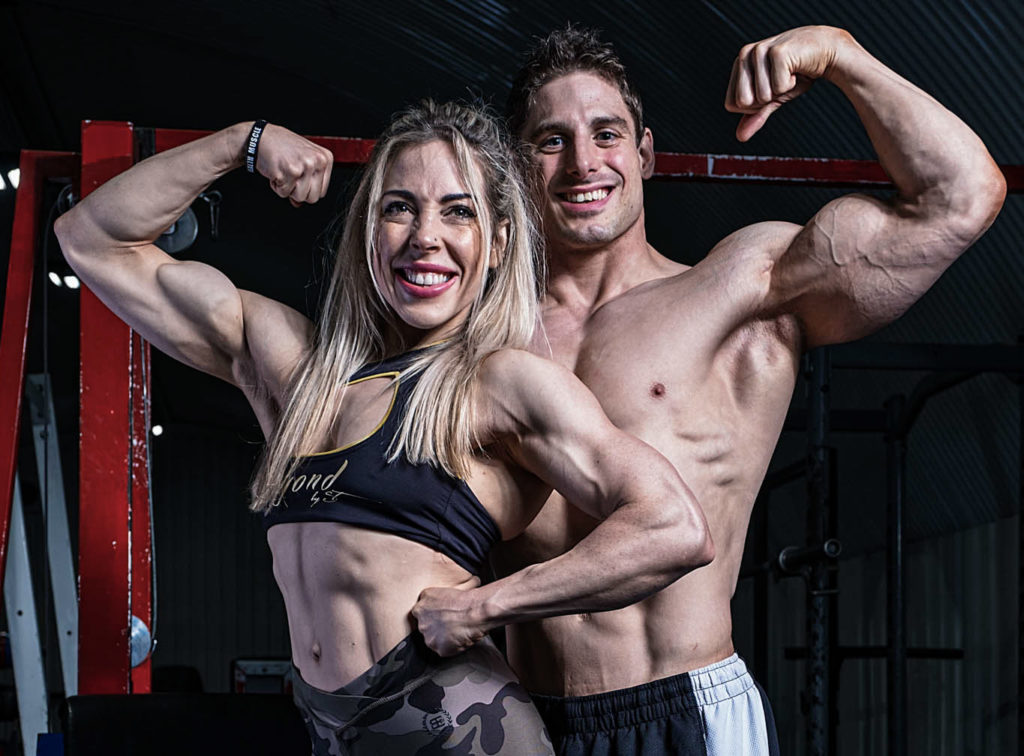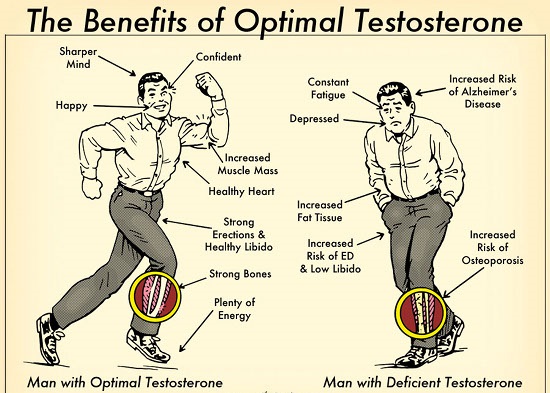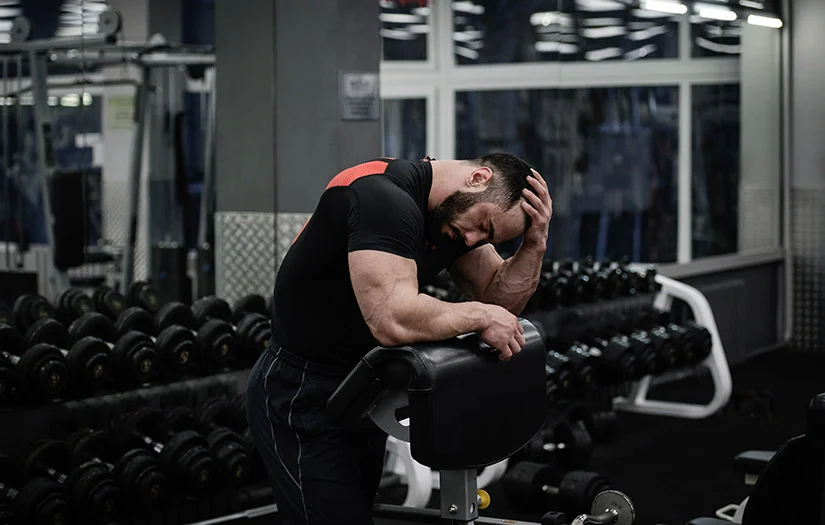Dr. Andrew Chappell, BSc (Hons), MSc, PhD, WNBF Pro
I love competitive bodybuilding; I’ve done it my whole life and I’ve got a lot out of it. I’ve made no secret of that fact, and now I’m in a fortunate position to be able to help others achieve their own bodybuilding goals. If you find this information useful and you think I can help you achieve your goals too, then please go to the sign-up link once you’ve finished reading this article.

INTRODUCTION
I’m a big proponent of balance and taking a healthy approach to bodybuilding and fitness. The main reason for this is because I know how hard competitive bodybuilding is. As soon as you start to diet for a show, everything about your world changes. Prep is tough, so tough in fact that when I surveyed how long the average bodybuilder spends in the sport, I found they tend to only last three years. The reason in my opinion is that some athletes just get burn out. Some athletes will go 100% into offseason and then 100% into a punishing comp prep never having any down time, and consequently they don’t last. It’s probably the only sport you see athletes doing this, in other sports people take holidays and have a pre-season. Hence why I always place a huge enthuses on balance, the focus is always on the long game. So, long as you apply yourself around 90% in the offseason, you’ll get much of the same result as someone who went 100%, plus you’ll be happier. So allow yourself that occasional beer, or slice of pizza. All that aside, if you read the article on here on ProPrep Clients first time competitive experiences, you’ll see overwhelmingly that they all loved competing. They all admit though it was incredible tough, but they also say it was extremely rewarding. People find out a lot about themselves when they compete, it changes them, makes more resilient and self-sufficient, and in a way it’s a bit of a spiritual journey. I’ve even likened it to a pseudo religious experience since you to make sacrifices like the Christian and Muslim traditions of Lent and Ramadan. This point alone makes competition prep incredibly rewarding.
Now I’d once heard of comp prep dieting as “controlled starving to death” and with all this in mind, myself and my colleague Dr. Trevor Simper, a former competitive bodybuilder, sports nutritionist, and psychologist sought to identify the physiological and phycological changes that occur to the athlete’s body during competition prep. We wanted to find out how true that statement really was. We recruited 4 athlete (3 male, 1 female) and followed them during the duration of their comp preps over 8 months and the recovery phase (post show). We took blood samples, measured body fat, metabolic rate, done some performance tests and performed a battery of psychological tests. We felt we might be able to better prepare athletes and coaches if they knew what they should expect out and how they might potentially mitigate some of the side effects. A link to the full article and the title is available below for those keen on reading the whole thing. For everyone else I’ve included the abstract summary:
Further Reading

Chappell, A.J., Simper, T.N., Trexler, E.T. and Helms, E.R., 2021. Biopsychosocial Effects of Competition Preparation in Natural Bodybuilders. Journal of human kinetics, 79(1), pp.259-276.
https://www.ncbi.nlm.nih.gov/pmc/articles/PMC8336548/
“Bodybuilders are judged on the subjective visual assessment of their muscular size, proportion, and leanness. This case series tracked four drug-free bodybuilders (3 male) during the off-season, pre-competition and recovery phases. This study aimed to comprehensively profile key biopsychosocial changes occurring pre/post competition in a group of British natural bodybuilders. We measured: resting metabolic rate (RMR), body composition (via BIA, ultrasound and sum of 7 skinfolds), lipid profiles, fasted glucose, blood pressure, power output (Wingate), grip strength, and carried out psychometric questionnaires (EAT-26, STAI, BUT) over an eight-month period. Mean weight loss from 5 months (5M) to pre-contest (PRE) was 8.6 ± 4.1 kg, followed by an increase of 7.9 ± 1.6 kg two months post contest (POST). The mean RMR of the cohort was stable from 1899 ± 630 kcal (5M) to 1897 ± 598 kcal (PRE), before decreasing to 1797 ± 242 kcal (POST). Mean peak power declined from 770 ± 113.0 w (5M), to 700.0 ± 134.4 w (PRE), before increasing to 816.0 ± 116.2 w (POST). Competition dieting had no effect on EAT-26 or BUT scores, suggesting no body dysmorphic or eating disorder concerns, although trait anxiety was elevated in three out of the four participants throughout the observation. Many of the biopsychosocial changes that occur to bodybuilders as they prepare for competition return to baseline measurements 2 months post competition.”
So by now you get the picture comp prep is hard and a whole load of stuff happens mentally and physically. At this point though I think it’s also important to be very clear that any level of hardship, psychological, or physiological adaptations a person is faced is likely to be individual. Those who get leaner, spend longer dieting, and use more extreme methods are likely to suffer more than others. Those doing softer classes will probably have an easier ride than the harder ones. Personalities also matter some athletes retreat into themselves and become increasingly socially isolated and hangry, while others remain sanguine throughout. So it needn’t be a self fulfilling prophecy, some get on just fine, if you want to suffer though you absolutely will. Mindset like most things in life is key whatever you pursue.
What can you expect then I hear you say? Well if you want a full run down of the physiological and psychological consequences of comp prep dieting then please do check out our paper. What follows is what I’d consider some of the main effects you should be aware of:
Hunger and Tiredness
When you prep you cut calories and do a lot of activity. That activity increases as you prep and the calories also continue to drop. You’re going to reach a point, where the hungry is uncomfortable, you might be quite literally starving. You’re going to be beat up, lethargic, sore, agitated, and demotivated. Train might become a choir, you’re going to struggle to recover from sessions. All the aches and pains you might have had down the years suddenly also get amplified. You might not want to go out and see friends, go to the shops, get out of your desk chair, and fetch something. All this requires effort and the adaptative thermogenesis that takes place, the reduction in your baso metabolic rate, blood pressure and resting heart rate, all occurs in a bid to help preserve energy.
Some like to describe it as being in the trenches, “hurting” or going to a “dark place”. If your goal is to get truly shredded with ripped glutes, striated pecs and quads at the sub 6 % body fat levels you’re going to have to suffer a little bit for that goal. I’ve literally had clients tell me they feel like their dragging their asses around or their legs feel like they’re drunk, that’s how low their energy levels get sometimes.

Disordered Eating & Body Image Concerns
Related to hunger, you’ll also get cravings both for good quality food and junk food. The danger of course is that you cheat on your diet and undo all the hard work. More sinisterly though some may be at risk of developing unhealthy eating practices where they fall into cycles of binge eating and restrict out of guilt. Post competition can be a struggle for some to come out of restrictive eating patterns. Re-establishing healthy relationships with food and eliminating guilt is important here. I’ve heard many a tale of a post contest competitor struggling with choice in a supermarket and feeling guilty about taking meals off with family. Post competition it can take a while for some to get back a semblance of balanced/guilt free eating practices. Similar to issues with eating, some may have issues with their body image, they might suffer from a degree of body dysmorphia (aka bigorexia). Personally, is a major factor at play here, since both eating disorder and body dysmorphia like behaviour didn’t increase in our study, while other research I’ve conducted doesn’t seem to indicate a higher prevalence compared to other weight dependent sports. Breaking the habit of compulsive self-monitoring and a realisation that it’s okay to have bodyfat is important. The longer you hold onto that contest shape, the longer you prolong the recovery. Coming to terms with the offseason body though can be just as difficult for some to overcome. This is where I wouldn’t discount poor coaching practices as being a trigger to develop eating disorders or body image issues.
Your Sleep gets messed up
We didn’t track sleep in our study, but this is something well documented in the bodybuilding world. Your sleep gets messed up, along with you feeling tired and hungry, you can get extra agitated due to a lack of quality sleep. You might even be waking up in the middle of the night struggling with hunger. Sleep supplements might help, zinc, melatonin, cherry active, CBD Oil. In a lot of cases though your sleep is only likely to return to normal in the post comp period once you regain your body fat levels and your body regains the ability to regulate its own hormone levels and nervous system that bit better

Your Cold All the Time
Related to adaptive thermogenesis, and low bodyfat levels. Fat is an insulator, it keeps heat in the body, however as you drop fat and energy intake, your body adapts to save energy, you stop fidgeting as much and shivering as much. Combine this with the fact you’ve probably shaved off a lot of your body hair and you just get cold. This phenomenon was first reported in people suffering from starvation, and hunger strike. As soon as the calories and the bodyfat comes back athletes stop feeling the chill.
Cramps and Twitches are common
Electrolytes play an important role in muscular contractions and the nervous system, as you restrict your diet some people might end up on very low sodium diets, as a result they may experience more cramps and poor training where they struggle to get a pump. Your nerves in your body which are normally separated by connective tissue and body fat. However, as you lose body fat, sometimes you’ll get pins and needs or twitches as your nerves start to get pinched where bodyfat levels would normally stop this.
Hormones, Mood and Amenorrhea
Your hormones end up in the toilet. Testosterone, Oestrogen, and Thyroid can all end up suppressed during a competition prep as a result your libido goes, as does your energy and training intensity. Both low oestrogen and testosterone are linked to depression and unsurprisingly competitors can suffer with low mood, increased situational anxiety and general anxiety. Combine this with the increase in stress hormone cortisol and you can see a further effect on mood, but also GI symptoms like diarrhoea, lack of sleep, and increased anxiety. Moreover, cortisol breaks down protein tissue, and chronic elevation may lead to a loss of muscle mass. Post show athletes can get the post contest blues, it’s only until the reclaim the lost body fat levels and increase the energy content of the diet do the hormones come back and the mood disruptions dissipate. Thyroid is a master regulator of metabolism, it helps with energy liberation from fat cells, protein tissue and glycogen stores. Because of comp prep in some cases, you can see a degree of thyroid suppression, which can make weight loss challenging. Related to hormonal disruption Amenorrhea and Oligomenorrhea common among female competitors. Periods become irregular, both longer or shorter, they can occur more often, less heavy, or disappear completely because of low energy levels and low body fat levels. Not every woman will experience this during comp prep, and I have known competitors to get their period on the day of an event, despite having extremely low body fat levels. Post show again these issues can be resolved by regaining bodyweight, however I have known some competitors to take 4 to 5 months for cycles to return to normal. I’ve even had to advise male competitors to take time away from the gym 4 months post contest to get their testosterone levels back to a healthy place.

GI Issues, Hair, Skin and Nails
A diet rich in fruit, vegetables and wholegrain is ideal for helping someone reach their daily fibre target of 29g/day. This keeps you regular, however when it comes to contest diet, fibre is often lower because of eliminating the aforementioned foods. As a result, you can get constipated, bloated and they end up holding water and sometimes unwanted bodyweight. What of the lesser known talked about phenomenon in comp prep dieting is the effect on your skin, hair and nails. When you start to get really lean competitors report losing hair, or their hair stops growing or becomes brittle. Consequently, a similar thing occurs with your nails also. While it can just take that little bit longer for scratches or bruises to disappear. I’ve even heard of athletes describe their skin as less soft or poorer quality after long periods of dieting. Now whether it’s a consequence of nutrient deficiencies or of low body fat levels and energy is difficult to say, since nearly all competitors take multivitamins, and essential fatty acids, but it is just another one of the myriad of symptoms that people experience and which disappear post comp
Social Networks & Relationships can become strained
People report their relationships suffer during comp preps. One partner might be all in trying to get in shape, while the other wants to go out for a meal at a restaurant or away for weekend trips. Family members become concerned with weight loss and with eating patterns and behaviours, while people can become isolated because they feel unsupported and misunderstood. Sticking to a competition diet all the time can, at times be really inconvenient and in practical. These are all things that athletes need to be aware of, comp prep takes up a lot of time, that doesn’t always leave time for lots of other things. Moreover, don’t expect to be going on holiday during comp prep. You’ll not be the only one making sacrifices during this comp prep. Related to mood, eating attitudes and body dysmorphia people can also suffer with comparisonitis. Constantly comparing yourself to people online, who might be competing against you or may be taking drugs can be unhealthy for the athletes’ mindset and self-esteem. Sometimes it’s best to remove yourself from the situation altogether and stay in your own lane.
Training Intensity and Performance Suffer
Mass moves mass as they say in the strongman world. There is some truth in this saying. Competitors typically lose between 10 to 15% of their bodyweight for events, as a result the amount of weight they can shift goes down and athletes can expect to see a reduction in their one rep max. Not only that. Though, performance suffers in relative terms as well. As athletes progress through a comp diet they should get lb fo lb stronger, however there does come a point at which even this starts to suffer. This point probably coincides with a specific bodyfat percentage e.g 4 to 6 % in men, or testosterone concentrations and energy levels. There’s no escaping it I’m afraid, you’ll reach plateaus throughout and sooner or later you’re going to see a reduction in your performance.

Summary
Much of what we do at ProPrepCoaching revolves around trying to maximise our clients performance during their comp preps, while trying to mitigate as many of the negative side effects as possibly. Being seasoned competitors, seasoned coaches and academics that work in this area really gives us an edge in this area compared to our peers. Seasoned athletes are better at dealing with the stress of competing compared to novice competitors. It’s not that they find it any less difficult, they just know what to expect. As the dieting bodybuilder your consistently walking a tight rope between, consuming just enough calories to maintain muscle mass and facilitate weight loss, and consuming too little calories resulting in muscle loss. When you think about it in evolutionary terms, you can see why many of these adaptations take place. Thankfully though once you regain bodyweight, bodyfat and increase the calories post competition many of the unwanted side effects disappear as was seen in our own study of the 2 months post competition. Prolonging diets and lengthy reverse dieting isn’t recommended and adherence is likely to be poor, although some may benefit from this approach.
